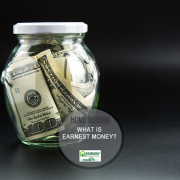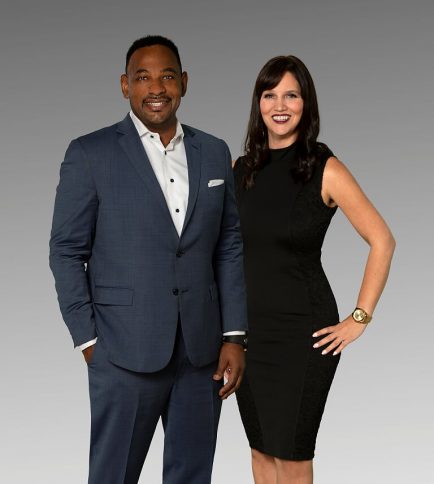What is Earnest Money?
To buy a home, you will probably need at least a little cash on hand. While there are ways to minimize the cash you’ll need to put down toward the purchase of a new home, avoiding it altogether is nearly impossible.
One of the things you need to budget for when buying a home is an earnest money deposit, no matter whether you are buying a new construction home or a resale property. When someone asks you to hand over a few thousand dollars (often expressed as a percentage of the home’s selling price), you’ll naturally want to know where it’s going, why they want it, what happens to it if things fall apart, and many more questions. Here are three answers to some of the common questions regarding earnest money deposits.
3 Answers to the Question: What is Earnest Money?
The first question that might pop into your head when asked for an earnest money deposit is: Why do you need it?
When you make an offer to buy a home you’ll nearly always be required to put down a deposit in the form of earnest money. Home builders may even require that you put a significant deposit forward, especially if you’ll be making selections for things like paint colors, floor plan, counter tops, cabinets, etc. Whether for a new construction home or a resale property, this deposit simply shows that you are serious about your intent to purchase.
Another question you’ll want to think about ahead of time: How much should I expect to put down for my earnest money deposit?
The answer to this question can vary for multiple reasons. In a hot market, there’s more competition from buyers and sellers, so you might find that a higher deposit can help you win in a competitive market. In Washington state, home buyers are often expected to put down anywhere from 1 to 3% in earnest money deposits. When it comes down to it, it’s up to the seller or home builder what they want as a standard. In some cases, builders will be lenient and require a much smaller deposit, especially in areas like military communities where living situations can be much more fluid.
Maybe the most important question in your mind when writing that earnest money check: Where is this money going and can I get it back if something goes wrong?
Naturally, if you are handing over thousands of dollars to someone, you want to know that your money will be safe and you certainly question if you will ever see it again. You’ll arrive at the answer by knowing these three things:
1. Who holds the money? An earnest money deposit is usually held by the title company who will be processing the home sale transaction from start to finish. In rare cases the deposit may be held by a real estate agent or some other third party.
2. Where does my money go when the sale is complete? Your deposit money goes toward the final purchase of your home. An earnest money deposit is in essence simply an advance payment toward your final down payment, making the amount of money needed on the day your home loan closes lower. You don’t necessarily save any money this way, but it does give you the advantage of spreading out your down payment.
3. Is there a chance I will lose my earnest money? Yes, there is a small possibility when you put your earnest money deposit down, you might not get it back if the sale falls through. This should be outlined in your purchase and sale agreement, so be sure to read it carefully and ask your agent or seller to go over those terms and conditions with you. In cases where you lose the sale because of credit issues or circumstances out of your control, you’ll nearly always get your deposit back (potentially minus a small processing fee). A new home builder can also make exceptions, but if it’s not something that covers you in the purchase agreement, it would be up to the seller’s discretion.
Purchasing a home can be stressful, especially when thinking about how much cash you’ll be spending to make it happen. Understanding why you’re paying an earnest money deposit, where it’s going, and how safe of an investment it is can help put your mind at ease when buying a house.








Trackbacks & Pingbacks
[…] Earnest money is a deposit made to a seller showing the buyer’s good faith in a transaction. Earnest money allows the buyer additional time when seeking financing. When buying new construction, it’s typical to pay the earnest money when you agree to buy the home a few months before the actual home is built. The amount of the EMD depends on the demand for homes. In a slow real estate market where the seller isn’t getting many offers you may only have to pay $500-$1000, but in a fast moving market you may have to make a bigger deposit, perhaps up to 2% or 3% of the offer amount. Your lender will communicate the exact earnest money needed to pay. […]
[…] You might also like: What is Earnest Money? […]
[…] You might also like: What is Earnest Money? […]
Comments are closed.